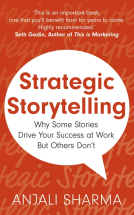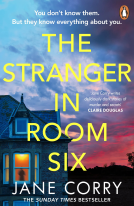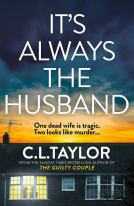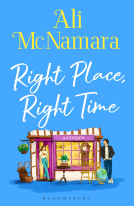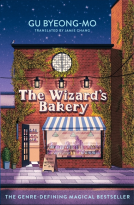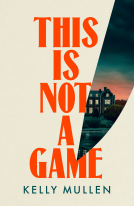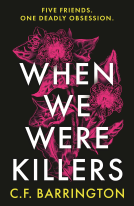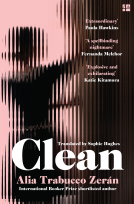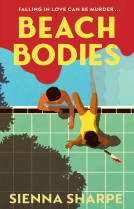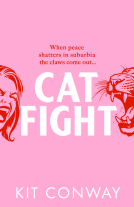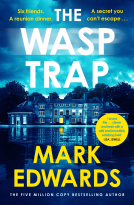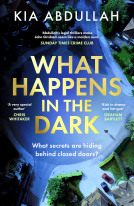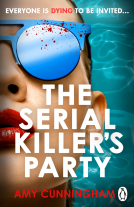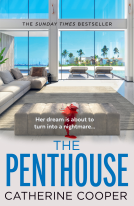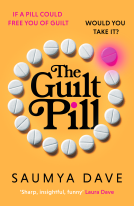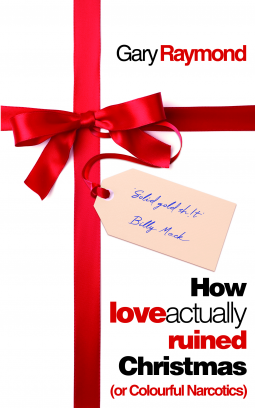
How Love Actually Ruined Christmas
(or Colourful Narcotics)
by Gary Raymond
This title was previously available on NetGalley and is now archived.
Send NetGalley books directly to your Kindle or Kindle app
1
To read on a Kindle or Kindle app, please add kindle@netgalley.com as an approved email address to receive files in your Amazon account. Click here for step-by-step instructions.
2
Also find your Kindle email address within your Amazon account, and enter it here.
Pub Date 1 Jun 2021 | Archive Date 31 Dec 2020
Talking about this book? Use #HowLoveActuallyRuinedChristmas #NetGalley. More hashtag tips!
Description
Advance Praise
'A must buy for Christmas. Had me crying with laughter.' - Sophie Buchaillard, Writers on Reading podcast
'This book is perfect for people who hate the movie AND people who love the movie' - Writers on Reading podcast
'As we get closer to the season finale of America, and 2020’s plot is one polar bear attack away from being not wholly dissimilar to the chaos of the last season of Lost, this hilariously scathing scene-by-scene analysis of Love Actually and why Gary Raymond hates it is exactly what everyone needs.' - Have_you_read_this bookstagram
Available Editions
| EDITION | Other Format |
| ISBN | 9781913640217 |
| PRICE | US$13.99 (USD) |
Featured Reviews
I really liked this book, I thought I was the only one who did not like the movie, Love Actually. It is nice to know im not alone. This book is very funny.
How Love Actually Ruined Christmas by Gary Raymond was, admittedly, always going to be a hard sell to someone who habitually refers to the film as a perennial favourite. Still, I was open to hearing what the author's objections to the film were, and I have to confess that they are, indeed, valid, well-researched and oh, so, so witty. I was helpless with laughter, agreeing with all that this seasoned film critic had to say, and as much as I have always loved the film, I concede that all of his observations are not only shrewd, but very on the nose. I found the commentary on the Karen/Daniel/Sam dynamic to be particularly astute. Will I watch this movie multiple times leading up to Christmas? Yes. Will I be viewing it with a more critical eye to the bigotry, misogyny, and litany of fat jokes? Absolutely.
I would highly recommend this read for anyone in need of some levity in these trying times. It is brilliant, snarky, and hilarious. 4.5 stars
Many thanks to NetGalley and Parthian Books for the opportunity to read this ARC.
 Tammy B, Reviewer
Tammy B, Reviewer
I confess that I do, actually, like Love Actually and watch it almost every year. That said, in general I'd rather read about movies than watch them, so I did enjoy this amusing, if occasionally strident, book.
Thanks to NetGalley for providing an ARC copy for my review.
 Cheryl M, Reviewer
Cheryl M, Reviewer
The authors put into words what may have made you feel uncomfortable about the movie, and offer some interesting insights about alternative meanings of some of the scenes and scenes that were cut from the final movie. I agree with the comments about the problematic scenes (like the placards) and Laura Linney's role was completely wasted and her character should have had a much better ending. This is a great addition to the Christmas haul for someone who didn't enjoy the movie, but cannot avoid it at this time of the year.
 Laura H, Reviewer
Laura H, Reviewer
I received an ARC of this book thanks to NetGalley and publisher Parthian Books in exchange for an honest review.
I have no strong attachment to Love Actually. I saw it for the first time two years ago and found it pretty ridiculous but one of the better Christmas movies (honestly there are few Christmas movies I actually like, which in itself is a kind of crime). The second I saw this book though, I was excited. I love sarcastic takedowns of romcoms and honestly, one of the things I love about the genre is how insane the plots can get and how unrealistic they are. I was not disappointed with this book!
This review will be short because honestly, the cover tells you everything you want to know. I was worried this book would be bitter, an adult man cheerlessly tearing apart a movie aimed at women with no awareness of his lack of a place in doing that. Thankfully this book was extremely funny and one of the reasons the author dislikes the movie is the misogyny contained in the film so there was no trace of 'girl hate'. The best way to describe this book is imagine you're watching the movie along with a funny friend who hates it. It is framed as a scene-by-scene recap with comments inserted about the film/plot/production. No deeper analysis is offered particularly (except for a brief intro dissecting the cultural impact of the film) but it isn't needed. This is clearly a book written for entertainment rather than academic merit.
Overall, if you want a fun nonfiction Christmas book to entertain you while the TV shows Love Actually for the fourth time this year, then you can't go wrong with this. I loved the light, humorous style and I think the author did a fantastic job of getting the balance right between hatred and entertainment.
Overall Rating: 5/5 stars
Love Actually is certainly not a great movie, but it's a movie that many people really love. And why? It's 2+ hours of questionably romantic stories, including people falling in love during their work as sex stand-ins and a non-attractive British man successfully wooing multiple very attractive American women - all because he says "bottle" with a British accent. And the flashcards, don't forget the flashcards.
I wouldn't save that Love Actually ruined Christmas, but I'm ambivalent enough about the movie to have been intrigued by this book. Gary Raymond is certainly funny, and he does a good job pointing out the casual misogyny and nonsensical plot lines dreamed up by Richard Curtis. The book is essentially a snarky recap of the movie, jumping around to each plot in order. These quick shifts seem more frenetic on paper than on screen, and I think the book would have been stronger if Raymond had devoted a chapter to each thread of the story rather than switching between them. But it was still a fun, quick read and a great look back at 2003, a time that seems very far away now.
Thank you to Parthian Books for providing an ARC on NetGalley in exchange for an honest review.
 Librarian 552665
Librarian 552665
My thanks to Netgalley and Parthian for a copy of “ How Love Actually Ruined Christmas “.
I’ve always had a problem with this film and was convinced , due to its popularity , that it was just me !
Gary Raymond has written this book with good humour and has been able to put into words all the elements, and there are many, that don’t sit right with me.
Obviously with so many characters in the film it is hard to make them well rounded , but so many of them just annoy me .
A well written , humorous book that I would definitely recommend, even if you do like the film !
 Cindy C, Educator
Cindy C, Educator
The first time I saw Love Actually, I didn't like it. I also don't like Four Weddings and a Funeral, so the fact I sat through Love Actually (and stayed awake) was rather surprising. I have watched it now numerous times and it has grown on me, but that doesn't mean that I still don't have issues with it. Gary Raymond's scene-by-scene analysis at times felt redundant, but then, so is the movie. I appreciate Raymond's wit while he is skewering Curtis and his awful script, muddled timeline, and widely inappropriate attempts at humor. If you love or hate Love Actually, Gary Raymond's book is the perfect reminder that it is not the greatest offering of modern cinema.
As a regular viewer of ‘love actually’ I was interested to see how this book would develop.
Whilst I’m critical of stuff in life, i have generally watched movies for enjoyment. I loved 4 weddings and a funeral, I watched it countless times before Love Actually was released, so I loved this movie too. I was interested in how the odd things in the film (which I think don’t bother me as I watch it at Christmas when I’ve turned off those bits of me) present to others. The author was funny and it was an enjoyable read.
Will the book put me off settling down to rewatch Love Actually? No. I’m sure I’ll watch it for many years to come.
Thanks for the opportunity to read this book in exchange for an honest review. Thanks to Netgalley, Gary Raymond and the publisher.
 Stacey H, Reviewer
Stacey H, Reviewer
I have spent (until recently) years despising this film...I still hate that bloody song though! 🎶 And although it's set at Christmas, I still can't bring myself to class it as a Christmas movie, pretty much like' Die Hard'.
This was laugh out loud funny, easy reading for both lovers & haters of the film.
And my favourite part & the most memorable to me will always be Hugh Grant & his dad dancing to 'Jump'! 🕺
𝗜 𝗴𝗮𝘃𝗲 𝘁𝗵𝗶𝘀 𝗯𝗼𝗼𝗸 𝗮 4 🌟 𝗿𝗮𝘁𝗶𝗻𝗴.
Thank you to #NetGalley and #ParthianBooks for giving me an ARC of #HowLoveActuallyRuinedChristmas by #GaryRaymond in exchange for my honest review.
5 Stars
I firmly fall into the camp of people who love, love, love Love Actually so when I read the blurb of this book I absolutely had to read it. Gary Raymond takes us through the film, scene by scene, critically appraising everything from the characters, the actors, the acting and the writing of this film that seems to have become something of a Christmas Classic. This status seems to baffle Raymond who states that “Love Actually is a bad movie”.
This book was absolutely hilarious! I read it firmly in one sitting and there were moments that I laughed out loud much to the bemusement of my husband. As a lover of the film I particularly enjoyed the behind the scenes extra information that Raymond adds into the footnotes of the book (for example, did you know that Rowan Atkinson’s character was supposed to be an angel?) I would definitely recommend this book to both lovers and haters of Love Actually, it is an all-round funny, insightful exploration of a much loved Christmas film.
Confession time as soon as the John Lewis Christmas advert appears on screen, I’m in full Christmas mood. One of the first things I like to do during this time is buy a Gingerbread Latte (in a red cup) and drink it whilst watching “Love Actually”! It is part of ritual to get my excited about the upcoming season.
Now I know “Love Actually” is filled with flaws and problematic characters (Andrew Lincoln’s character is just awful). And the editing and time line is very confusing but for me it is the perfect movie to get me into the Christmas mood.
So why was I drawn to Gary Raymond’s book “How Love Actually Ruined Christmas”? Because, I knew the movie was like marmite and I wanted to know why someone would hate it so much to claim it ruined Christmas.
Raymond, divided the book into the timeline of the movie and dissects each scene in turn. In a comical and thought provoking way. This is also sprinkled with fact and additional commentary about the movie. Was Hugh Grant’s character based in Tony Blair or Boris Johnson?
This book will not stop me from enjoying my yearly ritual, it did make me watch the movie with fresh eyes! And provide a fun commentary on this Christmas movie.
I received an ARC from the publisher via Netgalley in exchange for an honest review
As a yearly watcher of Love Actually, I picked this book up out of curiousity. I didn't think it was going to change my feelings about the movie (which are generally positive), and I was correct. But it did make me think more about the sensitivity of some scenes.
There are a few parts of Love Actually that have always been problematic -- the "cue card" scene, the "fat jokes", etc. Raymond goes further by basically dissecting each scene with his analysis, but some of his comments were so snarky that it was hard to take them seriously. In a bookstore, I wouldn't know if this book would be shelved in the humor section or in film criticism. But he did have some valid points that hit home for me (particularly about the Prime Minister).
So I will still be watching and enjoying Love Actually in December, but I might look at some scenes in a new light.
MY RATING - 3
 Educator 618270
Educator 618270
Thank you to NetGalley for early access to this book. This book was compelling. Did I agree with all of it no, was it interesting to read yes.
 Grace L, Reviewer
Grace L, Reviewer
I really enjoyed this book - funny and insightful, I won’t be able to watch Love Actually in the same way again.
 Sarah C, Reviewer
Sarah C, Reviewer
Thank you to NetGalley for letting me read this.
I'm going to out myself here. I can't stand "Love, Actually". For many many reasons. I've never seen the appeal.
The beauty of this book is that
1. It confirms in exquisite detail that I AM RIGHT (oh yes)
2. Gary Raymond has sat and watched it on repeat to explain its many and varied faults (so I don't have to).
This book is funny. It's right. It's very readable. it might change your mind about this film (if you're one of those weirdo fans)
it also had me gabbling over breakfast this morning, explaining why young people should be studying film and media rathre than 19th century literature. And I love 19th century literature, in general. But we are bathed in film and TV and all sorts of other media, and should really know how to analyse it and think about it.
 Jennifer H, Reviewer
Jennifer H, Reviewer
Like many, I have complicated feelings about Love Actually. It's less than 20 years old, but already feels dated; yet it's too new to allow its faults to be forgiven for the time in which it was made. I'm not a fan of the holiday season, so the angst in this movie resonates with me. That said, I really enjoyed this scene by scene take down of the movie. I'll be laughing in a whole new way during my annual viewing from now on. I was provided a free copy of this book by the publisher in exchange for an honest review.
 Jennifer M, Reviewer
Jennifer M, Reviewer
Thanks to the publishers for sharing this one. I literally laughed out loud a couple of times. I'm glad I'm not the only one who wasn't a fan of that movie. My full review appears on Weekend Notes.
 Pam C, Reviewer
Pam C, Reviewer
As a regular watcher of Love Actually over the festive season, I was intrigued as to how Gary Raymond would approach his critique of the film. So many of his observations were spot on - Emma Thompson's Karen telling Liam Neeson's Daniel to get over the death of his wife, Joanna, before they had even had her funeral, for example, Billy Mack and his Britney Spears joke etc. Laura Linney is wasted in this movie but it is a big ensemble cast and that's the beauty of it. So many parts don't gel, are misogynistic or are just plain old weird. Still it's essential Christmas viewing to be watched when the kids are in bed while wrapping the last presents. The book is funny, going through the film scene by scene picking up on so many different things. Not necessarily essential reading but definitely a humorous mickey take of the film beloved by many.
This is a fun read and, without trying to be dismissive or rude, a good gag gift to be added to the pile of books in the smallest room in the house. The ‘colourful narcotics’ in the title is because the author misread a review referencing ‘colourful neurotics’.
Raymond has decided to make use of the time in lockdown in this pandemic world, to finally write the book he’s been threatening to write for years. The one about how that perennial festive favourite, “Love, Actually”, is not the warm and fuzzy cinematic triumph people think it is.
It is of course, tongue in cheek and should not be seen as a serious argument – plenty of people love and enjoy and watch this film all year round.
The book itself is a scene by scene breakdown the film, character driven. Doing it that way does highlight some of the ridiculous timelines – how does Tony get from being on the set of the adult film to the wedding reception? Why does he do that? He doesn’t appear to be an invited guest but is hanging out the back…
Some of the points are funny and manage to articulate something I hadn’t put my finger on before. The fact that the central premise is that Christmas is a time where you tell the truth, for example. Never has that been a principle in real life Christmas. You spend time with relatives you might have differing views from you, politically or otherwise – Christmas is not the time to tell them you’re vegan because all dairy produced is inhumane. You wrap that all up in a neat bow and pop it in a box, ready to be nice for a few days. You pretend you love that present, you don’t want that last roast potato and you definitely think that one glass of wine is enough.
Other points have been discussed and analysed at length – the affair with Alan Rickman and his secretary, the fact that the central ‘joke’ about Martine McCutcheon’s character is that she’s ‘fat’ and unsuitable for a Prime Minister.
I’d recommend this book as a Christmas present for someone who dislikes the film already, fancies a slightly fun read and will no doubt read bits of it out over the annual family screening of the film.
 Kate S, Reviewer
Kate S, Reviewer
I was the perfect candidate for this book. I held the title for being the only one of my friends and acquaintances who had never watched Love Actually. I asked my 21 year old daughter if she’d ever watched it and the reply came swiftly “Yeah. It was sh*t” I do love how pithy the youth of today are!
So I set myself the challenge of watching the movie and then reading this book. I’m not sure I would call the film sh*t with the same vehemence that my daughter and the author have but it certainly isn’t the amazing classic that people think it is and viewed through the lens of 2020 it’s is hands over eyes, peer through fingers cringy in the main.
So, Mr Raymond’s book; I don’t agree with him on every point, some I think he’s got a valid opinion that I just don’t share and sometimes I think he’s reaching so far he may unbalance and topple over but regardless this man can write!! Every point made is with wit and the book flows so quickly I read it in probably a similar time to how long I sat through the film. I spent a good deal of time disturbing my daughter from her endeavours by reading bits out and chuckling to myself. I think ALL books about films from henceforth should be written scene by scene as Raymond has done here. It meant I managed to keep the narrative thread (such as it was!) of the film in my head and didn’t get to a chapter and think “which bit is he on about now?” this vehicle also heightened just how silly the timeline of the film was which increased my enjoyment of Raymond’s snarky commentary.
I think everyone should probably read this book. If you love the film and think it a romantic tour de force then you need to read it. Like, really, need need. If like my daughter you hate the film then you will love chuckling away and agreeing with the author and if you are like me and had no preconceived ideas about the film it is an enjoyable read that will help you decide actually how you feel about it and which parts.
When I saw this book's cover on Netgalley, my immediate reaction was, 'Finally!' This is a book that has been needed for years. Raymond mentions mid-way through that this is his 'lockdown book', not because it has anything to do with coronavirus but rather because due to the pandemic he had the time to sit down and write it. So ... I guess this is one of those silver covid linings? As most good thinking people know in their hearts, Love Actually is a horrific film, a cuckoo in the nest of legitimate festive entertainment, a leech on your Christmas tree. To quote its opening scene, Love Actually is 'solid gold s**t'. As we work to build a better world post-pandemic, let's start as we mean to go on. Read this book and remember. Christmas is better without Richard Curtis & co.
In How Love Actually Ruined Christmas or Colourful Narcotics, Gary Raymond provides a scene-by-scene critique of the original film. He analyses each of the nonsensical plotlines, badly-drawn characters and nauseating schmaltz, while also highlighting every instance of open bigotry. There are many. Raymond also manages to do all of this while also being hilarious. As with any other conversion mission, this is key since otherwise you risk alienating your audience. The people love Love Actually. The people need to see the truth.
I should make a confession here. I did not always see as clearly as I do now. In 2003 when the film was released, I went to see it twice. My mother bought the DVD with excitment and I even watched the DVD commentary. It was funny! It had Bill Nighy singing! Hugh Grant danced! There was romance and music and slapstick humour. But. Even then. I remember frowning when Bill Nighy's character made a crack about having had unsatisfactory sex with Britney Spears who would have been twenty-two at the time. I thought it was seriously strange that Liam Neeson's character was ready to start dating a mere five weeks after the death of his apparently beloved wife. And was it really fair for Laura Linney to get abruptly dumped for having a mentally ill brother? Yet when I queried it, people just tutted and told me off for nit picking. So I decided those things clearly didn't matter so much and that yes, Love Actually was a fantastic film. What can I say? I'm a constant work in progress. There was also once a time where I willingly read novels by Philippa Gregory.
As recently as 2013, I was still describing myself as a fan of Richard Curtis films. But then a few things changed. I read Hadley Freeman's Be Awesome and she pinpointed the various issues across Curtis' back catalogue. Even in his best movie, Kristin Scott Thomas is rejected by Hugh Grant's character and as a second kick in the teeth ends up with Prince bloody Charles. Most of Curtis' films are centred around a male protagonist's personal journey which is then rewarded by him 'getting the girl' who is often so lacking in interiority that she does not even notice whether or not it's raining. And now isn't the right time to get into the skullduggery Curtis committed over Yesterday. Badly done, Mr Curtis. Badly done.
But while I can still enjoy Four Weddings and even still half-close my eyes at the awkward moments of About Time (no consistency on time travel theory, sexism over only men being able to do it, manipulative lead character), Love Actually is different. As Raymond explains, Love Actually is pretending to be something greater. It thinks that it's teaching us something. It thinks it's teaching us about Love. The book's subtitle 'Colourful Narcotics' comes from Raymond having misread a review of the film many years ago. It actually described the cast as containing 'colourful neurotics'. For Raymond, the initial reading was perfect. The 'colourful narcotics' is a drug that 'dulls the critical senses, clouds people's judgment, making those susceptible to its hallucinogenic powers think they've seen a funny warm-hearted, romantic film about the many complex manifestations of love'. And that is not what we have here. One of the quotes from the book that has stuck in my head since reading is that it's not just that Love Actually is a bad film. It's that it is bad for you.
There are a lot of reasons for that. First of all, the writing is incredibly lazy. Billy Mack is selling a Christmas single based on the song 'Love is All Around'. This song became more popular due to featuring on the soundtrack to Four Weddings. Hugh Grant also points out that one of Kris Marshall's scenes was his own audition scene for Four Weddings. So rather than finding fresh inspiration, Richard Curtis has essentially dug around the back of his wardrobe to pull together a film. There are discarded storylines left and right. Rowan Atkinson cameos but was originally intended to play a wider role as a Christmas love fairy - to be honest, without this element, his appearances don't make another sense. There are a multitude of discarded plotlines from the fart jokes by Emma Thompson's son to Thomas Sangsten's gymnastics to random references to African aid work. There was also supposed to be the really tired cliche of a lesbian couple where one of them dies - because this always happens in films written by straight white men - but then Curtis cut this out too. Objectively speaking, this is a hot mess of a movie. It has absolutely no place as a Christmas 'classic'.
There's also the rampant misogyny. Throughout the film, Curtis' writing repeatedly hails supermodels as the standard of beauty. It gets really weird when Liam Neeson makes lots of inappropriate references about this to his ten year-old stepson. Martine McCutcheon is consistently referred to as fat. She isn't. I hope that Gary Raymond's next book gets stuck into that weird trope of fat-shaming non-fat women. It's as if the lazy Richard Curtis has sat down and thought, 'You know what's fun and makes everyone laugh? Fat jokes! Let's make some fat jokes! But it would be rude for us to call a fat woman fat. It would hurt her feelings. So let's cast someone who's an average size and call her fat instead. How the lols and laughs will roll in'. This really irritates me because it has a noticeable trickle-down effect into society. If you're reading this and you think I'm making a fuss over nothing, believe me - I'm actually not. The normalisation of these nasty little digs encourages women to hate their bodies. Again, this is not just a bad film. It's bad for you.
For Curtis, Women seem to exist solely as orifices. Colin goes to America and is immediately seized by on by slobbering females. Colin Firth 'falls in love' with a woman who he cannot actually speak to. Alan Rickman's personal assistant puts on a really repulsive seductive display - it was so good to read Raymond tearing that performance apart. What is with the way she sits on the office chair? And why does she wear devil horns to a Christmas party? There's also the odd way that Curtis goes out of his way to not name various female characters. Colin Firth refers to his cheating ex girlfriend as 'the lady of the house' rather than actually call her something. Liam Neeson's dead wife is only belatedly named as Joanna. These are striking omissions when barely a single background male character goes unnamed.
There's something so deeply depressing about the way that 'love' plays out in this film. Sarah seems to accept as her lot thats she will never be with Karl because she has had the audacity to have family complications. Martine McCutcheon's boss asks her inappropriate questions and then has her removed from her post because the President of the United States harasses her in the workplace. Keira Knightley is supposed to be flattered that Mark has made a creepy stalker video about her presumably for masturbatory purposes. And then rather than telling her husband that his best friend has made a creepy stalker video, the two of them are still running in the same circles in the final airport scene with the suggestions of a continuing emotional affair. The message throughout the film is that the male emotional life comes first. The men deserve to be happy and it is the duty of the women to accommodate this. And lest we forget, that is the basic manifesto of the incel community.
I remember talking to a male friend years ago about past relationships. He mentioned still having a 'pang' for a girl who he had had feelings for at university. She had declined his advances and so he 'kept on trying' since he thought that was what you were 'supposed to do'. But then eventually a few of her male friends intervened and told him to back off. This was a tale he told to gain sympathy about being 'unlucky in love' and so I nodded along while feeling a cold chill about how unnerved that poor girl must have been. A few months later, I saw a Facebook update where the same guy bemoaned that he was on a bus with a bunch of flowers - he had gone to ask out a girl and she had rejected both him and his bouquet. I would add here that this bloke was a reasonably pleasant person and functioning member of society. On both those occasions, he sincerely believed that he was a Nice Guy going about dating as a gentleman and that it was unfair that the women were not responding in the way that they were 'supposed to'. We need to teach our sons that they can ask a girl out but if she says no, that response is a) final, b) to be respected and c) not to be taken personally - any number of factors could be at play. You nod and you move on. Films like Love Actually where Liam Neeson encourages Thomas Sangsten to keep on trying since eventually he would get the girl ... well. We're back to the key point. This film is not just bad. It's bad for you.
Love Actually is a classic case of death by a thousand paper cuts. Any single poor joke might be dismissed as a momentary slip. But it's not a momentary slip. It's relentless. And it's really disturbing that Richard Curtis believes this is funny. The jokes about the Brazilian transgender prostitutes while they're at the wedding. The fatphobia. In a deleted scene, Bill Nighy's character asks a female record executive if she's ever given a really old man a blow job. Raymond muses on why these characters use 'such bullying, cruel, misogynistic language?' The answer is that they don't. Richard Curtis does. This is the same guy who looked at the 9/11 attacks and felt it was another sign of love being all around. To quote Raymond again, 'if you have ever experienced love and have cherished that feeling, then this film must leave you very confused'.This is not a nice film.
What's striking too when we look at it in 2020 is just how far its ideas have translated into the real world. Bill Nighy's seedy jokes sound like things that Trump said on the Access Hollywood tape. They certainly don't sit well in a post #MeToo world. Hugh Grant's Prime Minister character is very similar to the current occupant of Number 10 Downing Street. And if you don't think that Boris Johnson would be capable of changing important foreign policy on the fly due to a squabble over who gets to frisk the tea lady ... you're naive. And it's definitely true that when people cheered Hugh Grant sticking two fingers up at Billy Bob Thornton, we little suspected that this 'kind of fuck-you attitude [would find] a more damaging real-world form of expression in the Brexit vote'. We were complacent back in 2003. We thought this was 'just a film'. But it wasn't. It isn't. It's a nasty and poisonous bit of propaganda for how sufferings of entitled men are not of their making. Love Actually belongs in the bin. Not the kitchen bin but the outside wheely bin far at the very bottom of the drive.
To credit Raymond, he clearly sets out to be as fair-minded as possible. He even puts together an intriguing counter-case for Alan Rickman's character who he suggests is actually in the grip of depression. How else to explain why he is the least enthusiastic adulterer of all time? He spends a grand total of three seconds picking out the scandalous necklace but actually did buy something for Emma Thompson that was based on what he knew of her personal tastes. Viewed through that lens, the whole affair is no more than a desperate cry for help. Maybe.
Most pertinently though, Raymond ponders whether Love Actually is just a giant joke played on the audience. We see Billy Mack going through the motions to sell his 'solid gold shit' single which soars through the charts solely because it is tied in to the festive season. Everyone knows it's not very good but they wave it through because 'Uncle' Bill's funny jokes bring them a good belly laugh even if they are a bit inappropriate. A metaphor for the film as a whole. And we've been eating it up for seventeen years. Well. Enough is enough. Lazy, derivative, insulting and misogynistic. In the closing pages, Raymond remarks 'if you respect any living thing other than white men, this film must be a depressing watch'. It is. It really is. I make the commitment now to never watch this film again. I hope that I am not alone.
Colourful Narcotics comes highly recommended as stocking-filler this year - let's make 2020 count for something and ensure that Love Actually never ruins Christmas again! 🎉📽🎄
As someone who loves "Love Actually" but has friends who hate it, I was really intrigued by this book.
It's a fun, short read, written with wit and humour. While it did get me thinking about the film, it wasn't enough to change my mind about loving it - I don't agree with all of the author's interpretations, but then the world would be a boring place if we all shared the same opinion.
Worth reading if you hate "Love Actually" and are looking for validation and worth reading if you love it but want to understand why it's such a Marmite film. Overall, it was a great way to kill time in an A&E waiting room!
Thanks to Netgalley for the ARC without obligation.
 Natalie E, Reviewer
Natalie E, Reviewer
Thank you to NetGalley for giving me the opportunity to read this book.
The book title explains itself what this is about. Gary Raymond basically explains, scene by scene, why the film Love Actually isn’t actually that good. He explains why the film is more of a “colourful narcotic” designed to give the viewers the warm and fuzzy feeling, whilst showcasing some quite unpleasant messages - usually about women. I have always loved the film and watch it again and again - even when it’s not Christmas. And this book has lessened the love a little bit.
Gary made the book witty, humorous, and insightful - the book opened my eyes to some of the things in the film that I have always found funny but now looking at it I can see that some of the scenes are a little tasteless. A great book for fans and non fans of the film.
 Tina M, Reviewer
Tina M, Reviewer
HOW LOVE ACTUALLY RUINED CHRISTMAS (or Colourful Narcotics) by Gary Raymond is an in depth critique of the movie Love Actually. I really liked how this book goes scene by scene in order to give a detailed description of the movie along with Raymond’s thoughts and notes. I definitely agree with him in how this movie unnecessarily used fat jokes and misogyny to portray humour. I’ve seen the movie before and enjoyed some parts of it but it’s not one I would rewatch. After reading this book I’m in the mood to watch a *good* Christmas movie!
 Zee M, Reviewer
Zee M, Reviewer
I count Love Actually as one of my favourite movies ever, a perennial run-through to Christmas every year. I was a bit worried about someone who would go in to bash it all up...but I shouldn't have been. Oh, it does bash, plentifully so, but omg, the laughs and the wit and the irony and the glib writing! I couldn't help but nod along with the author because there's so many dynamics he nails on the head for what they actually are (Daniel and Sam! Karen! Harry's expressions) and I never really worked out the whole kerfuffle with the timeline and how it's all set up - eye-opening, that one.
But this was such a hearty laugh, so silly and yet on point, rude at times (which shaved a star in its rating for me), and absolutely the kind of light stuff you just want to ease into around the holiday period especially on such a difficult year
 Helen K, Educator
Helen K, Educator
A well-crafted critique of a film I would admit to being one of my guilty pleasures. Many of the comments are spot-on, and there are some laugh out loud moments.
A very easy read, and perfect for this time of year.
With thanks to Parthian Books and NetGalley for sending me an ARC.
 Stacey C, Reviewer
Stacey C, Reviewer
How Love Actually Ruined Christmas felt like it was written for me and echoes sentiments I wholeheartedly feel.
Love Actually isn’t a Christmas film. It is totally against everything Christmas should stand for. The author, like me, grew up in the 80s and tells the reader what Christmas means to him.
“Of course not, it’s not what it was. I grew up in the eighties, a decade that had enough problems of its own, but one that seemed to do Christmas the way I liked it. Toys were precious, and you know mum and dad had to work hard and save hard to buy them, but they weren’t unattainable, they weren’t driving anybody into debt, and they weren’t encouraging brawls in the supermarket. Christmas was special because it didn’t start in October but waited respectfully until the school broke up before the sound of carols or Phil Spector echoed in shops or the sparkle of street decorations lined the main drag through town…Christmas is about putting a soft focus on the past and creating a fireplace in front of which we can curl up and reminisce. Your memories of childhood Christmas don’t need to be historically accurate. They just serve to inform the tapestry of the good things growing up.”
Love Actually is cruel, misogynistic and poorly plotted. It is mean spirited and totally against what Christmas should stand for.
“Love Actually has nothing to do with Christmas. It just attaches itself to Christmas like a parasite and feeds off its sentimentality whilst pumping the host full of schmaltz.”
This book made me laugh out loud more than once but one of my favourite lines came when discussing the worse line of the movie.
“I think that anyone who finds warmth in the line ‘Lets go and have the shit kicked out of us by love’ probably deserve to have the shit kicked out of them by hobnail boots.”
As the author argues,
“It has a cold heart, it doesn’t understand anything about Christmas, and it falls well short of being a classic kind of anything.”
The appeal of Love Actually is lost on me but the appeal of this book certainly isn’t.
